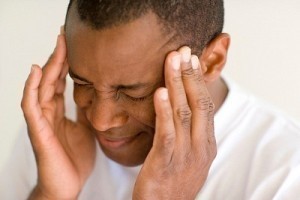Head Pain
Also known as cephalalgia or headache, head pain is one of the most common reasons why individuals seek help from health professionals or physicians. The pain can be chronic and acute and it is categorized into three types, namely primary headache, secondary headache as well as neuralgias. The categories depend on how often the pain occurs as well as the intensity of pain. To assist patients who frequently experience the health condition, discussed below are the causes and symptoms of headache. Aside from these, the methods used to diagnose the underlying causes and effective treatments recommended by physicians are also elaborated.
Head Pain Symptoms
Headache symptoms include mild pain in the upper, lower, left or right parts of the head as well as recurrent and dull aching in the head. Patients are advised to seek immediate medical assistance if a stabbing and sharp pain is experienced after a major trauma or injury. In addition to this, chronic headache accompanied with vomiting or nausea indicates that the condition needs serious and immediate attention from health experts. Other symptoms that should be taken seriously are severe headache accompanied with stiff neck, convulsions, fever or loss of consciousness. Children should also be taken to physicians if they experience recurrent head pain.
Causes of Head Pain
Some of the usual causes of head pain are eyestrain, light sensitivity, anxiety, depression, mild shock, fatigue and repressed emotions. Aside from these, shooting pain in the head can also be caused by serious health conditions. These include concussion, brain tumors, trauma, stroke, posttraumatic tension as well as brain hemorrhage. To avoid suffering from serious and life-threatening diseases, it is important that patients seek medical help at the onset of symptoms. In this way, physicians can perform tests to identify the real cause of the condition.
Head Pain Diagnosis
The real cause of headache can be easily determined by medical doctors or health experts by performing various diagnostic tests. The diagnosis may involve thorough physical examination and assessment of medical history. To successfully detect the cause, physicians may use advance technologies like computed tomography scan as well as magnetic resonance imaging machine.
Head Pain Relief
Mild symptoms can be treated by taking pain relievers like analgesics and ibuprofen. Having enough rest is also important. Alternative treatments include acupuncture, application of cold and hot packs, aromatherapy and hypnosis. To treat severe and chronic cases, physicians can perform surgical procedures and can try advance and sophisticated methods like laser therapy.
For more information on Head Pain read:





